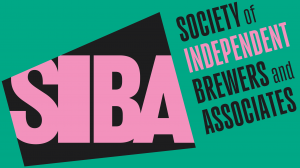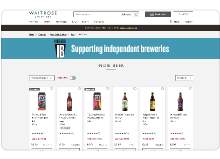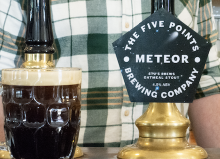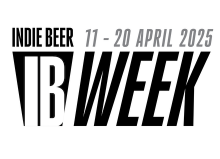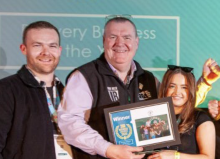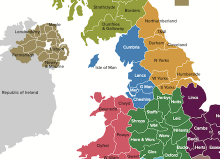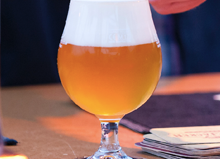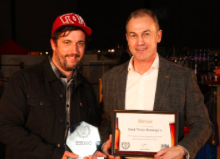SIBA Board Report – February 2020

One of the biggest changes happening within SIBA is the way we communicate. SIBA needs to listen to brewers, understand what you need, transpose that into action and then be accountable to you. Communication and transparency are key.
From this point on, I want to communicate to you directly about the things SIBA’s board discusses, how that impacts on you and what it means. We always have done this, but this is a new way of delivering SIBA Board news, to you.
About SIBA’s Board
Before we get into what SIBA’s board discussed, it’s important we all understand how everything works. SIBA is broken up into 8 regions, and each region has 3 directors for a total of 24. The Chairman of the Board (currently Ian Fozard, Roosters, NE region) makes it 25. SIBA’s board also has 4 non-exec positions who bring specific external skillsets. At the moment these are John Hart, who looks after finance. Carolyn Uphill on membership, Robert Humphreys on Public Affairs and Francis Patton on commercial. And I, supported by the Company Secretary Sara, make a total of 31 people. The Board sets the strategic direction and is responsible for the overall running of SIBA. Board meets 3 times a year.
We then have the Executive. Because the Board is quite large, the Executive manage the day to day running of SIBA and hold me as the Chief Executive to account. The Executive is made up of the 4 non execs mentioned above and 3 brewers elected from the Board. These are currently Dave Shaw (Hop Studio) Anthony Hughes (Lincoln Green) and Guy Sheppard (Exe Valley). Executive members are paid for their time, whereas Board members are paid expenses. The 3 brewers who sit on the Executive are elected to sit on it by the Board. I also sit on the Executive, with the Company Secretary attending for minute taking. Non-Exec’s sit on a rotating basis and I will be making recommendations to the Board on what skillsets we need in the coming months. The Executive guide the day to day operations of the organisation, and we meet 4/5 times a year. The Executive has its power delegated to it by the Board.
Each body is in regular email contact and speak regularly – so it isn’t just contact in those 7 points in the year!
SIBA is a representative democracy. So whilst it’s only right that your representatives (board members) report back to your regions what is discussed, it’s also my role to report back nationally, too. So here we go.
SIBA’s Governance Review
Motion 2 from last year’s AGM commits us to do a review of SIBA’s governance on an annual basis to ensure that we’re fit for purpose. There have been a huge number of changes to SIBA’s Governance over the last year and the Board was asked to approve these changes. There will always be questions that SIBA’s board is too big and too unwieldy. But I don’t think that is the case. SIBA has a lot of members, and we will hopefully be recruiting a lot more soon.
Having 8 regions, and 3 representatives per region means the workload is shared, and you as brewers always have a Director available to feed your concerns into.
SIBA has also strengthened the relationships between the Executive, Board and SMT. So each body is now clearer on what it has the authority to do (and not to do) with a proper Scheme of Delegation As mentioned above, it’s the Executive that actually help run things day to day, given permission to do so by the Board. We’re actually a lot more fleet of foot than it might seem. Another important component is how representative the board is. I keep a regular check on the sizes of brewer who sit on the board to make sure our board is representative of the membership. If we were to shrink the number of board members, that means more work for each board member and would point towards only larger brewers, with people and resources with more time being likely to sit. That makes SIBA less representative which is something no-one wants to see.
The Board approved the Governance Review and we will report back to the AGM.
Growing SIBA and Delivering for Brewers
SIBA’s Board also voted to change our strategy in relationship to membership recruitment. We think SIBA should be actively seeking to recruit new members and become the voice of all independent brewers. Some SIBA members are running an unofficial campaign to get SIBA to 1000 members, and I couldn’t agree more. Every brewer in the UK deserves a Trade Association that is listening and fighting on their behalf. Going after new members doesn’t mean neglecting our existing ones – far from it. SIBA’s Delivering for Brewers Initiative aims to deliver new benefits to every brewer every month. I’m excited by this.
So SIBA will now communicate with all brewers – not just SIBA members on the big issues that matter and seek to bring them in as SIBA members. Because we stand a much better chance if we work, and fight, together.
Statutory Accounts
At the February Board meeting every year, the Board is asked to approve SIBA’s statutory accounts. SIBA’s money is your money – so it’s vital that we use this resource prudently and we take care of it. SIBA has also just been through its first assurance – a process that replaced a full audit last year. The process and the level of financial scrutiny is actually about the same and ensures we have independent verification that everything we’re doing is above board.
Our accounts will be published on Companies House following the AGM at BeerX.
Democratising Policymaking
SIBA’s Board also discussed how we come up with policy, and the best way to do this. I want to further democratize policy in a series of policy groups. At the moment our Board and Executive discuss policy, but with an ever changing and ever more complex world we need expert groups to help us understand issues and come up with robust responses that are in the interests of all brewers.
In the next couple of weeks we will be announcing a series of policy groups where we can discuss, both formally and informally a policy challenge we are facing. As we leave the European Union the Government will undoubtedly look to change certain laws, taxes and regulations to make the UK more competitive (or not!). Either way, we need to be fleet of foot to respond quickly and to respond authority.
I don’t want SIBA’s policy lines to be cooked up by a few individuals – I want everyone to have the opportunity to get involved and this is what these policy groups will do.
SIBA’s new commercial principles
SIBA’s board signed off a new set of commercial principles, which are based on Isaac Asimov’s 3 laws of robotics. Just as robots are programmed not to harm humans, SIBA’s commercial principles are now programmed not to hurt SIBA members individual businesses. Combined with motion 3 – securing ethical, flexible pricing we’re in a good place. These principles will now be embedded across the organisation.
- SIBA may not harm the commercial enterprise of a Brewing Member, or through inaction, allow the enterprise of a Brewing Member to come to harm. In the event that SIBA is asked to consider a commercial enterprise that will benefit the larger majority of its members, SIBA will consider that the needs of the many will outweigh the needs of the few.
- SIBA must follow the instructions and decisions made by its Brewing Members through the motions raised in its Annual General Meeting, its Board Meetings and Executive, except where such decisions and instructions would conflict with the First Principle.
- SIBA must protect its own existence, through the raising of sufficient revenue from membership fees or non-competing commercial activity, so long as such protection does not conflict with the First or Second Principles.
If you think SIBA is breaking these principles, then get in touch. It’s important we stick to them.
FSQ Health and Safety
At the November Board meeting, the Board discussed the inclusion of Health and Safety within the FSQ. The FSQ is an important tool for SIBA in driving up beer quality and around 300 brewers have been through it. It was viewed, however, that given other standards in the market do not include Health and Safety elements that these should be removed and replaced with a full set of guidance. SIBA has now completed this work so the FSQ will focus on beer quality and brewers themselves can focus (with SIBA’s H&S guide and checklist – via Toolbox ) on making sure their work environments are safe.
2020 Resolutions
This was SIBA’s last board meeting before the national AGM. It’s where we take the resolutions (they used to be called motions) you have put forward as the regions. The Board then discusses them and puts them forward to the AGM.
We have three this year:
Resolution 1
This AGM requires SIBA to support an ethical sustainable marketplace, that promotes and works for a level playing field for independent brewers.
Sustainability, risk management and volatility management must be the beer market’s core principles in order for British brewing businesses to thrive. Unfair trading practices limit the ability of independent brewers to succeed.
This resolution asks that “Fair and Lawful Dealing” becomes a key principle of SIBA. It also calls on SIBA to act on evidence of unfair and unlawful trading practices in the marketplaces in which its member businesses operate.
Proposed by Shane Swindells and seconded by Chris Gooch on behalf of the Board
Resolution 2
Beerflex software should be substantially updated and improved as soon as possible, with an update on progress brought back to the 2021 AGM. Examples of such improvements may include, but are not limited to:
1 – The DDS system should be transformed into a real time 24/7 system that is operational all of the time to enable customers to order at any time
2 – Alerts should be provided to Brewers as soon as an order is placed via email and text alert and this information to be made available to brewers in the DDS system on a real time basis
3 – The system should be amended to enable Brewers to manage stock availability on a 24/7 basis
Proposed by Peter Turner – Mumbles Brewery and seconded by Gill Bullock – Swan Brewery
Resolution 3
This resolution requires the SIBA commercial team to negotiate an optional Minimum Order Quantity (MOQ) for each Beerflex order. The purpose of the MOQ is to ensure deliveries are profitable and reduce CO2 emissions.
Proposed by Robin Baker – Abbeydale Brewery and seconded by Mark Seaman – Revolutions Brewing
 I look forward to a lively debate, and to see you all at BeerX.
I look forward to a lively debate, and to see you all at BeerX.
James Calder, SIBA Chief Executive
